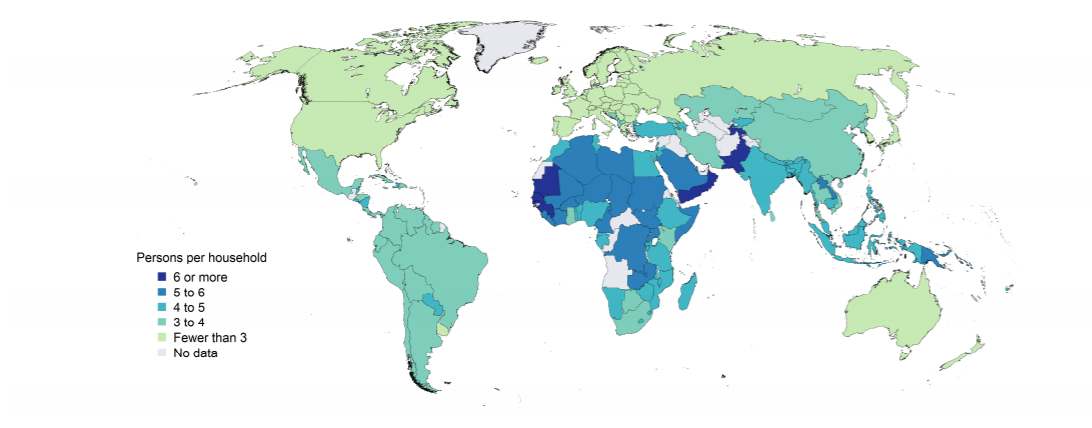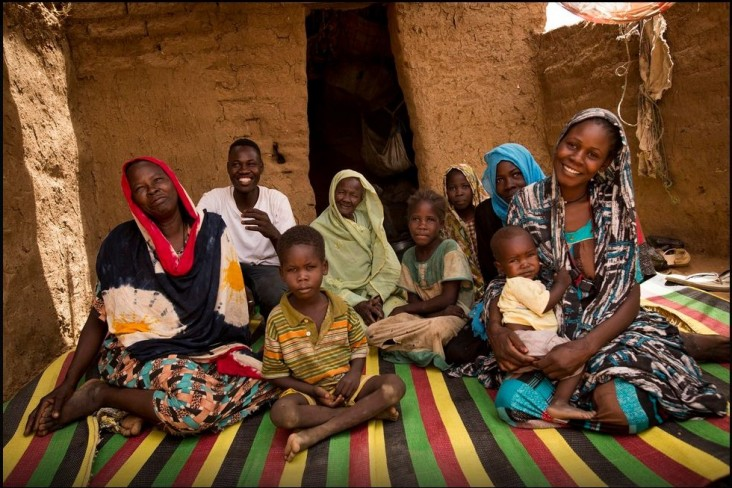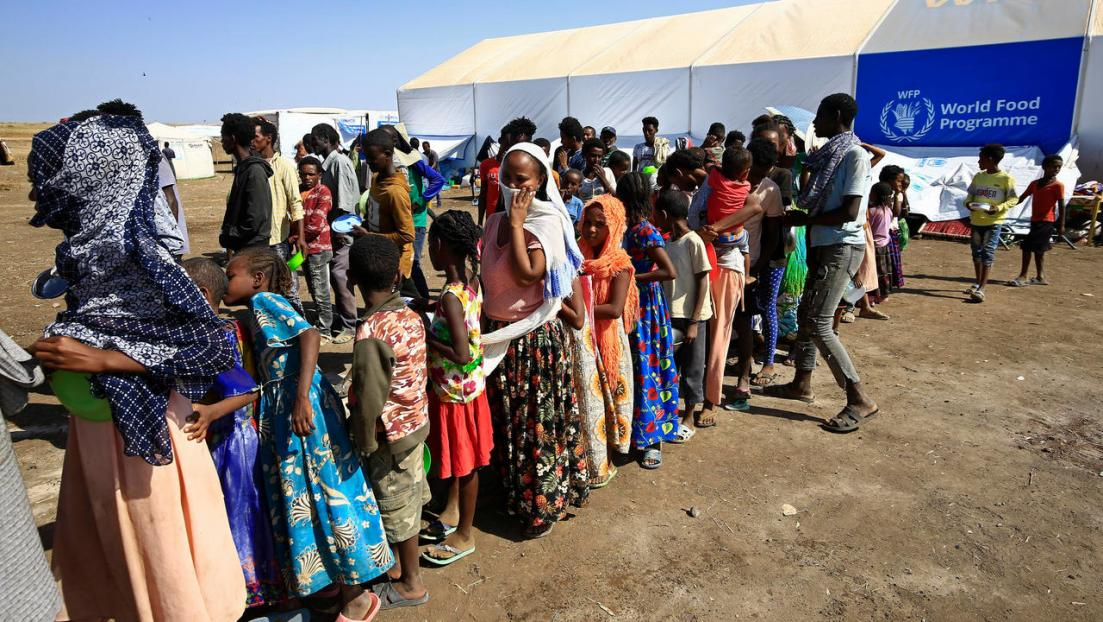Sudan’s culture can best be described as communal with so much weight being placed on social bonds and events that at times it feels suffocating and/or hindering. The rule of thumb is that one ought to know all their (extended) family members by name, attend all social events concerning family and friends and even friends’ families - and attend as many social events as logically possible. During financial and health-related troubles, Sudan’s culture is collaborative.
Communal Vs. Individualistic Communities
One could sing praise about communal cultures, however, during global pandemics like the one that’s been plaguing the world for as long as COVID-19 has been around, the situation becomes a little more complicated. Unlike North-American/European cultures centering around a smaller number of family members (fewer than 3), African households tend to be on the bigger side of the spectrum, with the majority of African countries falling between 4 to 6 (or more) members. This contrast is already obvious in things like career and lifestyle, but it is especially obvious now with the best method of prevention being social distancing; a nearly impossible task in a house full of family members.

Average household size around the world, UN Population Facts 2017
These statistics already show a stark difference between cultures, however, they don’t even begin to take into consideration how the economy has been forcing more people to live with their parents or boomerang and move back in with their families in developed countries. This mostly doesn’t apply to African youths and in specific Sudanese youth. In Sudan, moving out is linked with marriage (and at times not even that) and/or geographically relocating to a different state/country. There’s also the fact that a lot of families tend to be joint families. “In [joint or extended] families, there are typically two or more generations, either a group of brothers and their wives and children (a patrilineal joint family) or, in some places, a group of sisters and their husbands and children (a matrilineal joint family). This kind of family is long-lasting, and indeed self-perpetuating; a death makes no difference to its overall structure, and thus it can last over several generations, with a membership of up to a hundred people and more.” In urban parts of Sudan, it rarely reaches above 20 individuals or so, however, even half that number can be hazardous during a highly contagious pandemic outbreak.
I come from one of those matrilineal joint families and one of my funniest moments to date was the argument we had - a little delirious with fever - as to who was responsible for infecting our 13-person household with COVID-19 last April. We had been extremely cautious; sanitizing/washing everything we bring home and making sure we were washed up right after we walk in, but that was still not enough to protect us from the virus as there were children that didn’t really understand why they shouldn’t touch anyone/anything that comes from outside the house before they/it has disinfected themselves/the items. As much as we wanted to isolate ourselves before getting sick, there was still the issue of making sure everyone was provided for - an issue with which we didn’t struggle as much as the average household but by which we were still affected.

Source: Pond5
Given how cautious we were, we were mostly shocked whenever we’d hear about some extended family member having a wedding or whenever we’d get blamed for not paying our condolences in person. At times we’d also have visitors (while we were quarantined, mind you) get angry at us for turning them away. This all begged the question of whether people were aware of the dangers of COVID-19 and its ability to spread. It also begged the question of whether they cared.

Picture from a Sudanese Wedding, https://www.dreamstime.com/editorial-photo-sudan-wedding-bride-groom-photo-booth-image91570631
The concerns we’d had as Sudanese people during the lockdown, as is evidently the case within individualistic societies too, was about how to make sure you don’t carry the virus into your household and convincing your grandparents that, not attending that one specific social event will not be the end of the world. The stress might seem heavier in communal societies but there’s also the fact that in these societies one is rarely left uncared for. Loneliness when isolating or staying at home is much less painful in communal households and working mothers whose children suddenly have no schools to go to have someone to rely on.

Source: USAID
Refugees at Risk
According to Dr. Tedros Adhanom Ghebreyesus, the World Health Organization’s Director-General "Refugees and migrants live and work in often-harsh conditions with inadequate access to health, housing, water, sanitation, and other basic services”. When looking at how the majority of refugees in Sudan come from fellow African countries, one would be right to assume their societies and cultures are communal as well and that the loss of contact with their communities is an issue they struggle with deeply. Now add to that a pandemic where one ought to distance from others (practically impossible in camps and highly alienating for migrants who have no option but to cram into a small rented space) and you have an extremely vulnerable group that we should perhaps pay more attention. Dr. Tedros adds that “it is vital for all countries to reduce barriers that prevent refugees and migrants from obtaining health care, and to include them in national health policies”.

Ethiopian refugees in Sudan, https://www.france24.com/en/live-news/20201130-ethiopian-refugees-in-sudan-caught-between-camps-and-conflict
My family and I had all shown symptoms at around the same time which gave us no time to isolate. We’ve tested en masse and received the grand-positive results altogether. However, “If you or any of your family members develop COVID-19 symptoms, it is advised to get tested and self-isolate, even though it might feel lonely, but this is the best way to protect yourself and family members from catching the virus” It’s important to maintain the prevention methods (hand-washing or sanitizing, wearing masks and social distancing) even when someone isn’t experiencing symptoms and to make sure one takes extra care at home by disinfecting surfaces regularly as well as washing/disinfecting everything that’s brought home; from fruits and vegetables to cans, cartons, bags, and bottles.
